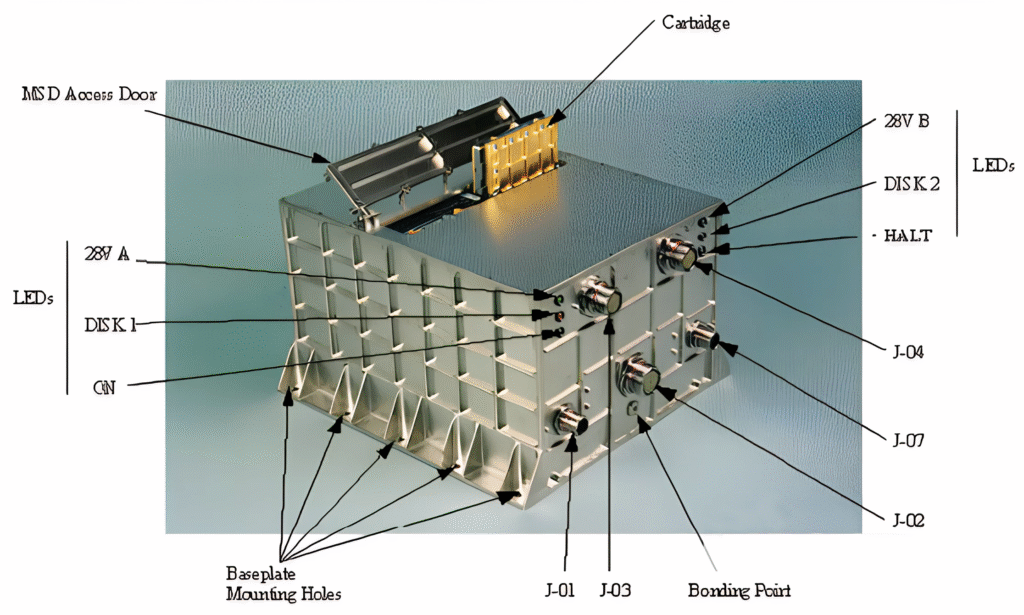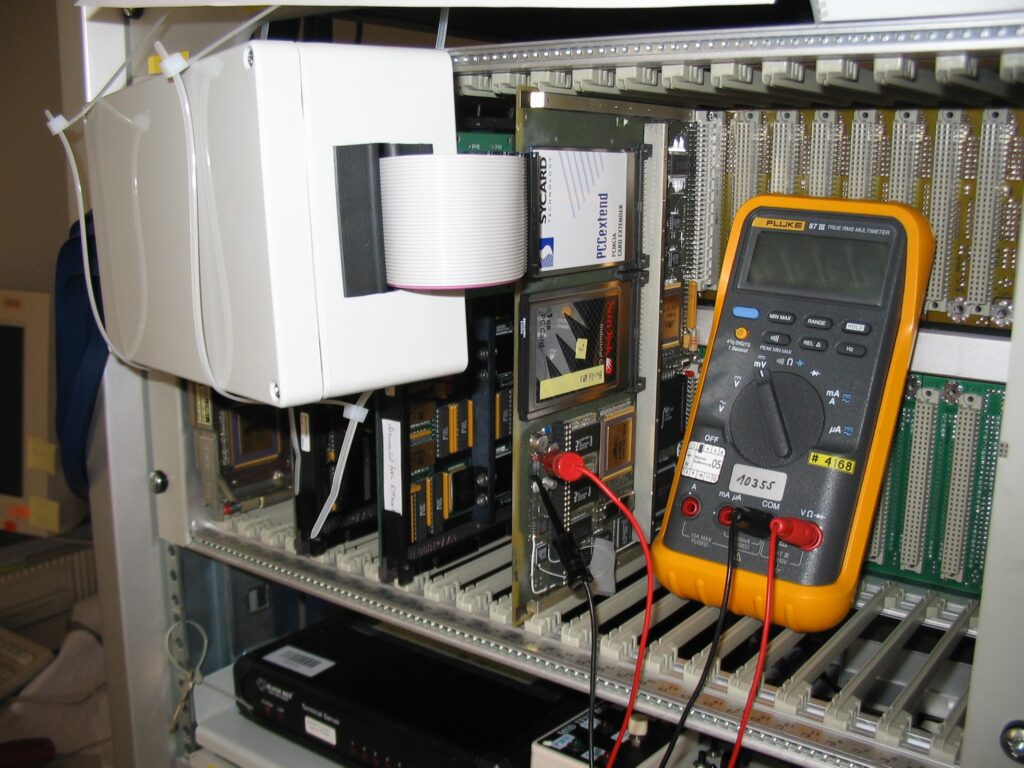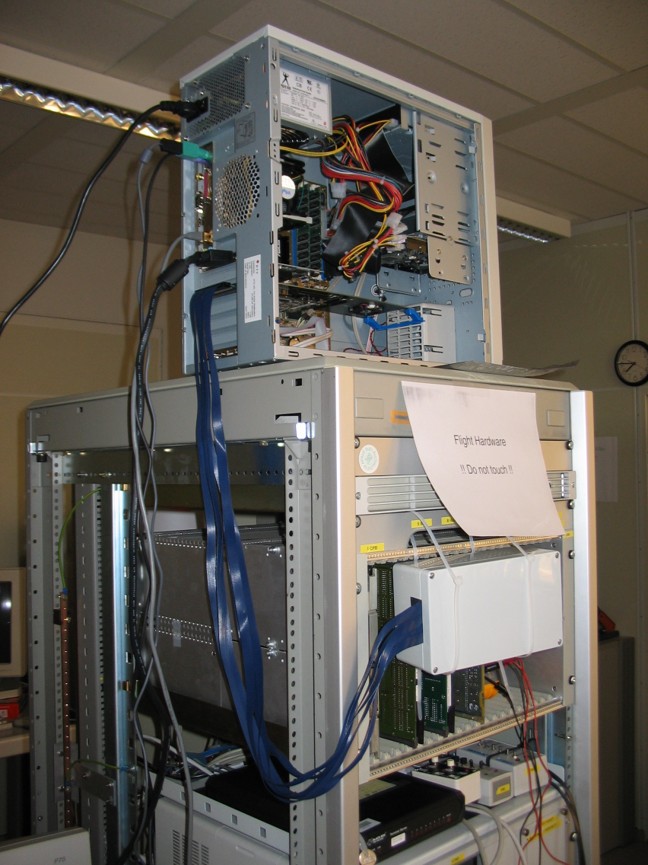PC Card Emulator for Mass Memory Unit
Cosmic radiation in space regularly causes errors in flash memories. SCS developed a PC card emulator for the mass memory unit of the International Space Station ISS to emulate memory errors and test the mass memory unit.
-
Initial situation
A mass memory unit (MMU) based on PC Card Flash Drives is used on the International Space Station ISS. As cosmic radiation regularly induces memory errors, the MMU must be able to correct them. Whether this is done correctly should be checked before the launch into space.
-
SCS solution
SCS developed a PC Card Emulator to emulate the behaviour of the flash cards. The emulator is based on an FPGA that specifically simulates the error states and behaviour of the memory cards and records all processes in detail.
-
Added value
With the PC Card Emulator, EADS was able to test the MMU in detail for memory errors and was ready in time for the launch into space. The emulator gives the user full control over the PC Card interface. The tests can be automated via scripts.
Project insights
Cosmic radiation consists mainly of protons, which are ejected from the sun at high speed. The Earth’s magnetic field deflects these charged particles towards the poles, which is why only a few high-energy particles reach the Earth’s surface. We only see them as auroras. The International Space Station ISS, on the other hand, floats unprotected in orbit in this stream of particles. These particles can trigger errors in electronic circuits in computers, including in the flash memories of the Mass Memory Unit (MMU). Accordingly, errors in the memory must be corrected again and again.

PC Card Emulator
PC Card Flash memories are used in the MMU for the ISS. SCS developed a PC Card Emulator for EADS, the manufacturer of the MMU, with which the behaviour of the memory cards and the error states could be simulated and recorded in detail. This enabled EADS to demonstrate that the MMU is robust against memory errors caused by cosmic radiation.

Tight timing
The behaviour and, in particular, the timing of the emulated flash cards had to be precisely adhered to. For this reason, specially developed hardware with drivers and a latch-up emulation was used close to the MMU with the PC Card interface so that the FPGA could be placed a little further away on a PCI card in the PC.
Extensive testing
The PC Card standard has grown over the years and is therefore quite inhomogeneous and partly manufacturer-specific. This had to be taken into account during emulation. As the overall system of the MMU is quite complex, the testing was also very extensive. An FPGA in the emulator provided the necessary flexibility. The user interface of the emulator gives full control over the PCCard interface. In order to keep to EADS’ tight schedule, it helped that the tests could be automated with scripts.

ESA Technology Tree
ESA defined a technology tree to structure the technical knowledge within the organisation. In this project, the areas 8D-2 Multidisciplinary Analysis. Electronic Ground Support Equipment and the area 9C-2 Preparation and Procedure Tools for Ground Data Systems.
